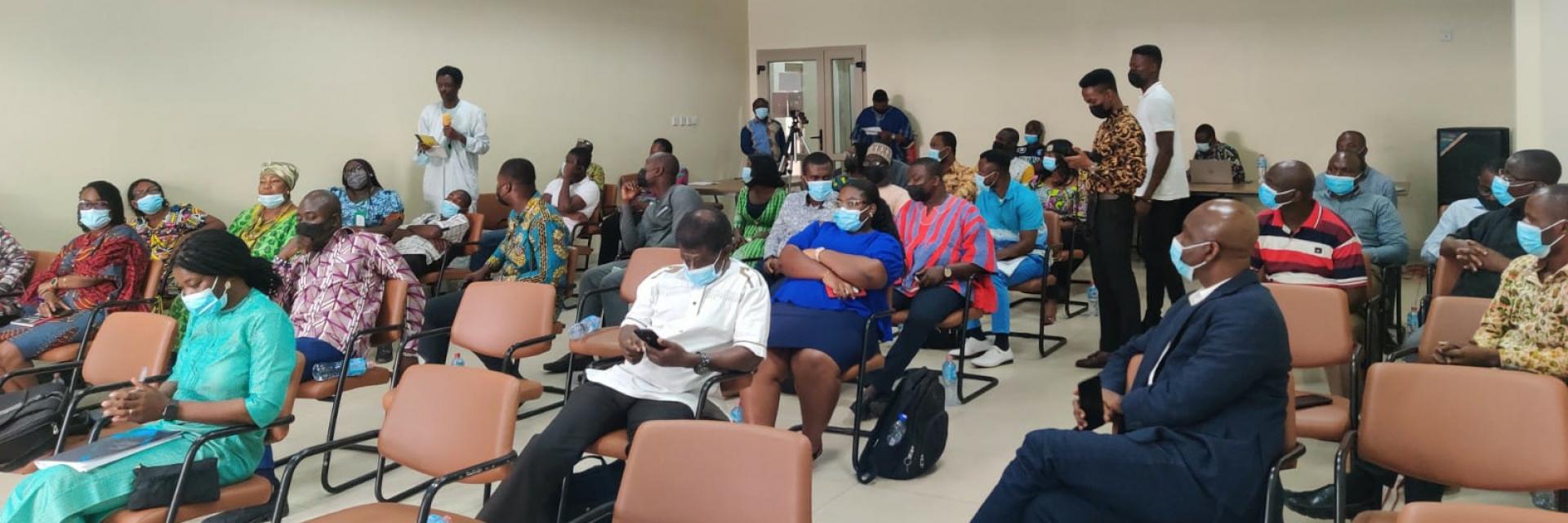Addis Ababa, 26 November 2021 – A new study, supported by the United Nations Economic Commission for Africa (ECA) and produced in collaboration with Accra Metropolitan Authority, for the first time reveals that Accra’s represents about one-third of Ghana’s annual gross domestic product (GDP).
The study breaks new ground by quantifying Accra’s contributions to the Ghanaian economy. Its application in Harare, Kigali, Lusaka, Maseru and Yaoundé will help develop a much needed regional guideline for GDP estimation.
Once available, African countries can use the guideline to regularly measure the contributions of their primary and secondary cities to their national economies to inform urban planning, economic policymaking and investment decisions.
The study was shared with the local government officials, national accounts specialists, data experts and urbanizations practitioners from UN agencies at a workshop in Accra today to seek their insights on its findings and underlying methodology.
New insights
According to the findings, Accra represented between 34 to 39 per cent of Ghana’s economy from 2015 and 2020. In terms of GDP per capita, Accra’s economic output per person was three times that of Ghana’s national average.
The services sector accounts for the largest share – on average 63 per cent – of Accra’s GDP, while the manufacturing industry’s contribution stood at 20.5 per cent.
“African cities contribute a large share to the national economy and have the potential to drive economic growth and social development. But this can only happen if cities are well planned and managed. For that, economic data at the city and sub-regional level plays a key role,” said Ms. Edlam Yemeru, Director a.i. for ECA’s Gender, Poverty and Social Policy Division, in her written message to the workshop.
Despite its critical role in supporting evidence-based decision-making at the sub-national level, in Africa, only very few countries have estimated city GDP to date.
Ms. Yemeru said: “For this reason, ECA is preparing will continue providing technical support for city GDP estimation in Africa together with its partners. This will draw on practical lessons and experiences from the initial cohort of African cities where ECA provided support for city GDP estimation, including Accra.”
She added: “While the study is of great value to inform urban planning and investment decisions in Accra, it should not be a one-off of exercise. It should be carried out regularly to assess and harness the city’s economic potential and performance, while efforts to expand such estimation to other cities in Ghana would be of great value.”
New regional guideline on city GDP
Drawing on the lessons from the three pilot studies, ECA will finalize a regional guideline on city GDP estimation, which will serve as a capacity-building tool and a practical manual for local and national governments to measure and monitor the economic output of their cities. The guideline will be released in early 2022.
Issued by:
Communications Section
Economic Commission for Africa
PO Box 3001
Addis Ababa
Ethiopia
Tel: +251 11 551 5826
E-mail: eca-info@un.org

